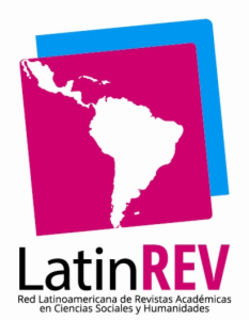A IMAGEM DA PAISAGEM E A PAISAGEM DA IMAGEM: O SISTEMA DE AQUISIÇÃO, PROCESSAMENTO, HOSPEDAGEM E INTEGRAÇÃO DE INFORMAÇÕES SOBRE RECURSOS AMBIENTAIS (SAPHIRA)
DOI:
https://doi.org/10.26512/2236-56562012e39947Palavras-chave:
SIG, GPS, multimidia, análise da paisagemResumo
Num cenário em que são demandados SIG com características de robustez em ambiente multiusuário existe a necessidade de se equacionar problemas básicos nas dimensões espacial, temporal, temática e cognitiva. O SAPHIRA (Sistema de Aquisição, Processamento, Hospedagem e Integração de Informações Sobre Recursos Ambientais), apresentado neste contexto, é baseado num sistema de indexação espacial e temporal de mídias (vídeo, áudio e fotografias) em ambiente SIG e que possibilita a integração automática com dados meteorológicos por meio de um servidor de mapas on-line. É descrito o potencial heurístico do SAPHIRA por meio de exemplos e realizada uma discussão da imagem georreferenciada enquanto descritora da paisagem, destacando-se o potencial do SAPHIRA em aferir dados contidos em SIG no campo. Adicionalmente é realizada uma discussão sobre a paisagem da imagem, que busca enfatizar a necessidade de conciliar as dimensões espaciais, temporais, temáticas e cognitivas, numa abordagem mais integrativa e aplicada para fins de análise ambiental.
Downloads
Referências
BERTRAND, G. (1972). Paisagem e Geografia Física Global, Esboço Metodológico. Caderno de Ciências da Terra. Revista do DG-FFLCH/USP, n.º13. São Paulo, 27p.
BRITO-NETO, R. T. & BARROS-FILHO, M. B. B. (2010). Potencialidades e aplicações de servidores de dados geográficos interoperáveis. In: III Simpósio Brasileiro de Ciências Geodésicas e Tecnologias da Geoinformação. Recife, UFPE. p.1-7. Disponível em: http://www.ufpe.br/cgtg/SIMGEOIII/IIISIMGEO_CD/artigos/CartografiaeSIG/ SIG/A_160.pdf
FORMAN, R.T.T. & GODRON, M. (1986). Landscape Ecology. New York: John Wiley & Sons, 619p. M
MCMENAMIN, S. M. & PALMER, J. F. (1991). Análise Essencial de Sistemas. São Paulo, McGraw-Hill 567p.
METZGER, J. P. (2001). O que é ecologia de paisagens. Biota Neotropica, v.1, n.1, p.1-9.
NEDOVIÆ-BUDIÆ, Z.; PINTO, J.K. (1999). Interorganizational GIS: Issues and prospects. In: The Annals of Regional Science, pp. 183-195.
OLIVEIRA, J. C.; SOUSA-NETO, W. P. & SANTOS, A. P. (2010). Aplicando API do Google Maps para criar mapa interativo. Estudo de caso: Campus-Viçosa. (2010). In: XIV Simpósio Internacional da Sociedade de Especialistas Latinoamericanos em Sensoriamento Remoto (SELPER), Guanajuato, Mexico. p. 1-9. Disponível em: http:/ /www.selper-mexico.org.mx/XT%20PDF/WEB/WEB-01.pdf
ROBBINS, P. (2003). Beyound Ground Truth: GIS and the environmental knowledge of herderes, professional foresters, and other traditional communities. Human Ecology, 31(2): 233-253.
SAITO, C. H. (1997). Considerações teórico-metodológicas acerca do potencial heurístico no uso de Sistemas de Informação Geográfico integrado a Banco de Dados Relacional em diagnóstico de risco à saúde populacional devido a poluição industrial. Brazilian Journal of Ecology, 1(2): 15-21.
SERGIO, R. (2001). Distributed Computing. SIGACT News, 32(3): 53-62.
SQUIRRA, S. (2005). Sociedade do Conhecimento. In: Marques-de-Melo, J. M. & SATHLER, L. Direitos à Comunicação na Sociedade da Informação. São Bernardo do Campo, SP: Umesp, p.255-265. Disponível em: http://www.lucianosathler.pro.br/ site/images/conteudo/livros/direito_a_comunicacao/254- 265_sociedade_conhecimento_squirra.pdf
XAVIER-DA-SILVA, J.; SAITO, C. H.; BRAGA-FILHO, J. R.; OLIVEIRA, O. M.; PINHEIRO, N. F. (1991). Um Banco de Dados Ambientais para a Amazônia. Revista Brasileira de Geografia, 53(3): 91-124.
YOURDON, E. (1992). Análise Estruturada Moderna. Rio de Janeiro: Campus, 836p
Downloads
Publicado
Edição
Seção
Licença

Este trabalho está licenciado sob uma licença Creative Commons Attribution-NonCommercial-ShareAlike 4.0 International License.






